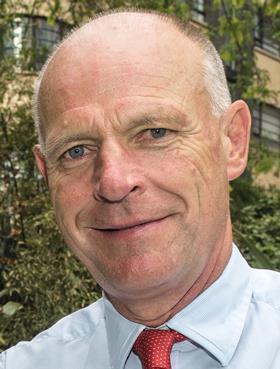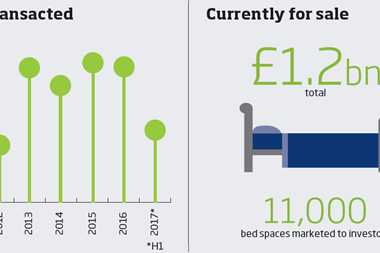The UK boasts 12 of the top 100 universities in the world. Student populations are now bigger than ever and still growing.

With the propensity for global equity to gravitate towards top talent, successful universities represent a major economic driver for the cities in which they reside.
However, student retention post qualification in university cities has posed a challenge, as many seek to move to London or return home after they graduate.
In the UK, 71% of employed graduates remain close to their home regions for work, according to a report from the Higher Education Careers Services Unit, showing that major cities are not doing enough to encourage graduates to stay on.
Meanwhile, data published by Centre for Cities found that London employs 22% of young people who leave their university cities. So how can regional cities redress this balance and increase the retention rate of the graduates embarking on their first jobs?
Skilled young professionals are key to supporting growth and helping to bolster regional economics. Yet, as the data shows, the perceived lack of longer-term prospects within their university cities coupled with the draw of London is encouraging the vast majority to head home or to the capital when they graduate.
The major regional cities are not doing enough to encourage graduates to stay on
If regional cities are to reverse this trend, they need to create more economically sustainable and attractive local environments. A vibrant city – which is also a socially inclusive and accessible commercial and leisure destination – is an appealing prospect for graduate workers.
Hermes Investment Management takes a proactive approach to investing in regional cities and a major focus is creating places where people will want to live and work.
This is evident at our projects at NOMA in Manchester, Paradise in Birmingham and Wellington Place in Leeds. Through the last two, we have also introduced like-minded long-term international investors to these cities.
Our commitment to placemaking helps to cultivate a sense of community and a sense of belonging, and this is a strong draw for graduates deciding where to base themselves. It is imperative that meaningful investment continues to flow into the UK’s regional cities to support the growth and positive change we are already seeing in many places as well as make a positive impact on society.
Onus on universities
It is important for university cities to be able to promote themselves as sources of talent for business. In parallel, one of the main incentives for new graduates to remain is the local employment possibilities on offer.
We have a number of UK and global brands either secured or already in occupation across our regional developments, such as PwC, which has taken 90,000 sq ft of office space at One Chamberlain Square in our Paradise scheme.
This will create regional employment opportunities for graduates for years to come. Attracting more than 40,000 graduate applications across the country, PwC also has offices in Newcastle, Cambridge and Glasgow, all of which appeal to high-quality graduates.

Recently, we announced that HMRC has chosen Wellington Place in Leeds as the new 377,000 sq ft hub for the Government Property Unit, part of a wider investment to create 700,000 sq ft of grade-A office space at the business park. This is another strong addition to Wellington Place’s existing high-profile occupiers, including Willis Towers Watson and Allianz and will increase the business community there to almost 10,000.
This acts as a catalyst to draw significant interest from other professional and financial services organisations, attracted by the talent pool, the presence of other global names, the exceptional location, heritage and strong transport links.
Another draw is improved public spaces, which encourage civic pride. These are all factors to consider when planning a development where generations of people will elect to live, work and socialise.
As university fees continue to rise,it is crucial that we continue to help create environments across the country that will stand the test of time and remain desirable at graduate level and beyond.
Chris Taylor is head of private markets at Hermes Investment Management































No comments yet